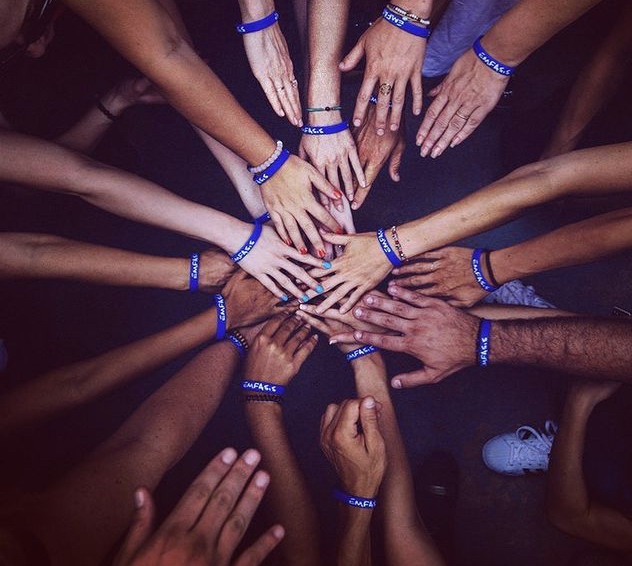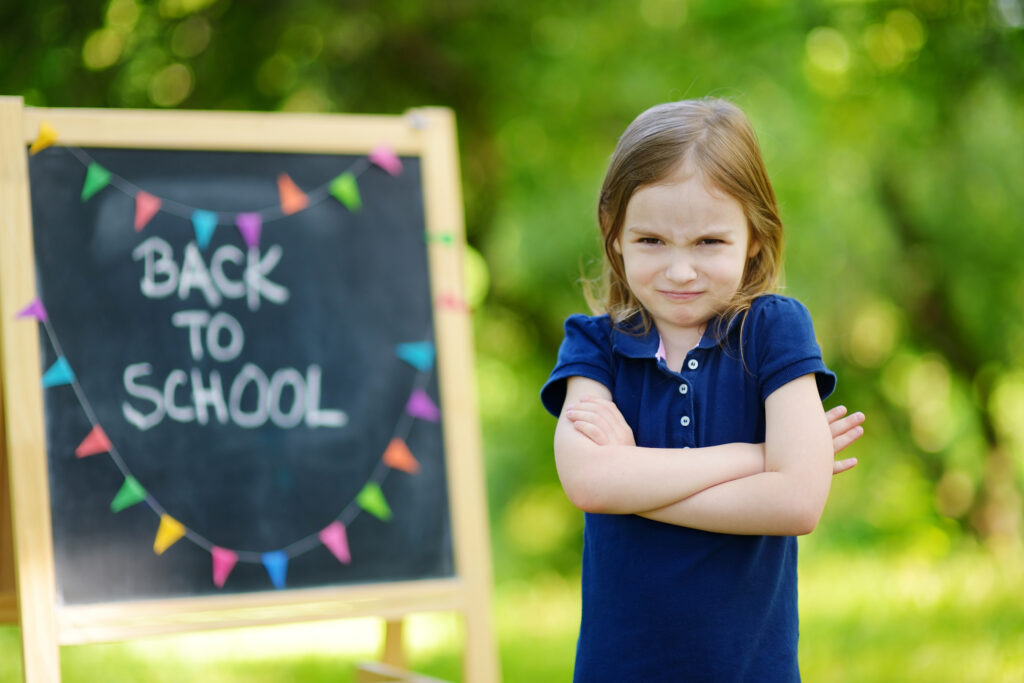
Raising a strong-willed child is very challenging.
Their strong spirit seems to always be challenging, testing, and pushing. Their emotions are intense, big and often seem to come out-of-the-blue. (Although it’s important to remember that behaviour is ALWAYS communication.)
The good news is that a strong-willed child’s determination and persistence, if channelled positively, will be assets as your child grows older. Also, strong-willed children are known to have a strong sense of integrity, which is why they often push-back. They feel everything and feel a strong sense of justice!
If you find that you are drained by your strong-willed child on a daily basis, you may wish to ask yourself these questions…
How Am I Managing As The Parent of A Strong-Willed Child?
Am I caught in the cycle of always reprimanding?
We want to try to aim for a positive to negative ratio of 5:1 and this goes for our spousal relationships too (based on the martial research from the Gottman Institute). For a quick reference guide of encouraging comments, you can download my pdf. in Encouragement vs. Praise.
Am I able to role model being calm and self-controlled vs. emotionally charged and yelling?
Our children are our biggest teachers for self-development and growth of our own patience and self-control. Take time to meditate. Read my previous article on: How to Teach My Child & Myself to Meditate
Am I seeing my child as the problem?
There’s a beautiful quote that says: “When a flower doesn’t bloom, you fix the environment in which it grows, not the flower” ~ Alexander Den Heijer What does your family environment look and sound like? Is your child acting-out because something in his/her environment is causing angst?
Am I unconsciously or consciously trying to break my child’s spirit by shaming, yelling, calling him/her negative names, using a tone of exasperation whenever I speak to him/her, looking at him/her as though he’s wicked and out to get me?
“What we focus on grows” how can I give more attention to my child’s positive attributes? “A discouraged child is a misbehaving child” ~ Rudolph Dreikurs. The pdf on encouraging phrases mentioned above will be helpful here.
If you find yourself in any of these situations, I deeply empathize. It’s no one’s dream to be in a constant state of struggle with their child. However, there are positive actions which can be taken that I hope will make a difference for you.
Today I’m going to focus on using the power of play to connect and bond with your child, tween or teen. To be able to set effective limits, one needs to have a close and positive relationship with your child, so let’s begin with creating more joy and next week I’ll talk about setting limits with your strong-willed child.
The Power of Play for Bonding, Connecting and Teaching Emotional Intelligence
We all know that play is a child’s language and therefore it is up to us to create opportunities to engage in play with our child every single day. Don’t worry, I don’t mean that you have to play blocks or restaurant for 30 minutes every day (although kids love having their parents as their playmate) but hopefully for the younger children, you can fit a piggy back ride in every day, even if it’s on the way to getting ready for bed.
When children are born with a more intense temperament, they need an outlet for their big emotions.
One of the best outlets is daily roughhousing. (For teens who are too big to wrestle their parents, they may benefit from joining a boxing gym or high-school wrestling team.) For tweens and teens, I have written some ideas at the end of this article for playfully connecting with your child.
The Numerous Benefits of Roughhousing
There are so many benefits to roughhousing which could take the form of pillow fights, play wrestling, piggy-back rides, horsey rides, jumping on a trampoline together etc.
- Roughhousing creates laughter which releases tension/anger/anxiety and increases Oxytocin – the natural chemical of bonding and connection
- Roughhousing teaches children to manage their aggression (think of puppies and how they love to play fight and how much this teaches them about handling aggression) as they self-monitor their own power
- Roughhousing increases emotional intelligence as one has to be constantly reading the other person’s expressions to figure out the next best move and if this is still a fun activity for both people
- Roughhousing may lead to a release of tears which is a good thing, unless someone’s crying because they got yelled at or severely hurt. Sometimes children cry because the roughhousing has to stop due to a time limit or because it’s getting too rough – these types of tears are healthy. The child feels safe enough to release his/her tears that have been stored inside and we all know that after a child has had a healthy cry, they are softer and seek cuddles and connection.
Remember as a parent, we need to hold back on our own strength and empower our children through roughhousing, not make them feel worse by holding them in a headlock and laughing at them.
When we roughhouse with our kids, we model for them how someone bigger and stronger holds back. We teach them self-control, fairness, and empathy. We let them win, which gives them confidence and demonstrates that winning isn’t everything. We show them how much can be accomplished by cooperation and how to constructively channel competitive energy so that it doesn’t take over.
~ Anthony DeBenedet and Lawrence Cohen
For further reading on the benefits of and ideas for rough-housing, these excellent books have many suggestions: The Art of Roughhousing and Playful Parenting
.
Hopefully, the thought of engaging in a good ol’ pillow fight is something you’d be willing to try.
Laughter and joy shifts everything and creates immediate positive energy and connection. (Just remember to set it up for success, so clear the area of any breakables or sharp corners of tables, before you begin!)
If physical roughhousing is not comfortable for you, then there are other ways that you can laugh and play physically such as:
- Having your child walk on your feet as you lovingly hold their hands or wrap your arms around them
- A foot massage or hand massage is another way to connect physically, if your child likes the sensation of massage. (Tickling is not recommended. Although tickling creates laughter it is actually an uncomfortable sensation that children rarely enjoy, and therefore doesn’t promote bonding.)
- A dance party – holding hands, twirling, dipping
Kids love to play chase and tag and it’s even funnier when their parent trips and can’t quite catch them. Remember, that in play you want to let your child win, especially with a strong-willed child. This empowers your child and actually reduces your power struggles in real life.
Play games that involve hugging. Hug your child so much and pretend that you just can’t let him/her go even though they’re squirming away and laughing! Hold onto them a little longer telling them how much you love them and then when you do release tell them that you’ll be back soon for more hugs.
Remember when our children were babies and we would sit them on our lap and sing songs to them, such as ” A smooth road, a smooth road, a bum-py road, a bum-py road, a HOLE in the road” (as you drop them lower between your knees). Your child may seem too big for these games now but many eight year olds or nine years olds still get a laugh from this and love that their parent is being funny and crazy and reminiscing about the silly things they did when they were a baby!
You may also be interested in my previous article on: The 12 Amazing Brain Benefits of Play
Activities for Playfully Connecting with Teens and Tweens
Sports activities – throwing a baseball, football or frisbee back and forth, basketball, soccer, street hockey, skiing, biking etc.
Rec. room games – foosball, ping pong, darts, air hockey etc.
Traditional Card Games – Crib, Poker etc.
Board Games/Card Games/Video Games – I’m not a proponent of hours and hours of video games but if this is a way that you and your tween/teen connect then it is valuable as long as the time is monitored
Cooking/Baking
Nerf Rival (intense nerf guns for teens) in your backyard or Paintball Centres
Family comedy movie nights
Going for a walk and getting ice-cream/hot chocolate/tea etc.
Woodworking/Carpentry/Construction
Sewing/Crafts/Knitting/Felting
Manicures/Pedicures
Hiking/Camping/Cooking food over a camp fire
Anything else that you can think of that brings you both joy!
As the old saying says “Families that play together, stay together”. For those of you on Spring Break, I hope you’re having fun playing together 🙂
Warmly,

PS. Canyon Height Elementary PAC are hosting me and inviting all parents from all schools to a presentation on Understanding Anxiety and Anxiety Management Strategies. This event will take place on April 6th from 7-8pm and you can reserve your free ticket on EventBrite here.
PPS. Registration for my next round of “Brain Science” groups to teach children ages 7-9yrs. and 10-12 yrs. about anxiety and anxiety management strategies is open. The 7-9 year old group is sold out but there are still spaces in the 10-12 yrs. group. You can register online here and click on “upcoming events/groups” and scroll down.
PPPS. The Amazon links to recommended books are affiliate links which means you don’t pay a penny more, but if you buy through my links I will receive a tiny commission which goes toward the running of this website, so thank you in advance for your support.
**If you enjoyed this article about Raising A Strong-Willed Child Playfully please forward to your friends and family and share your “like” on my Facebook page, Instagram or Twitter. Thank you – I appreciate your support.
Want to Connect?
Subscribe now to receive free weekly parenting tips and inspiration.






